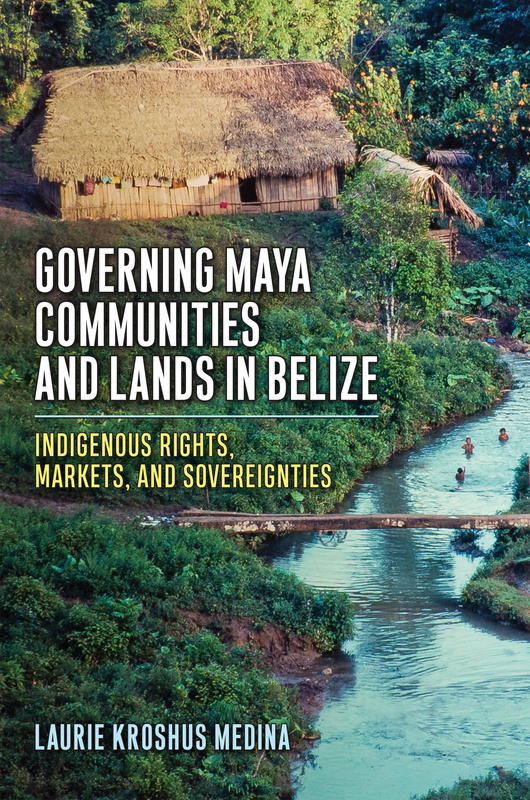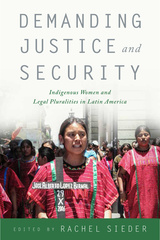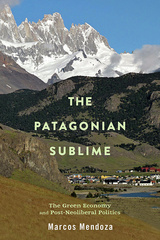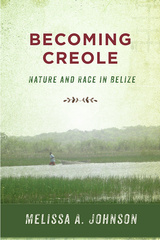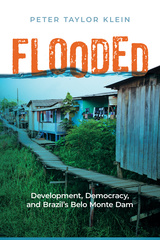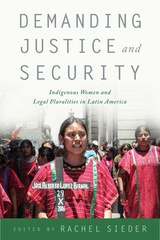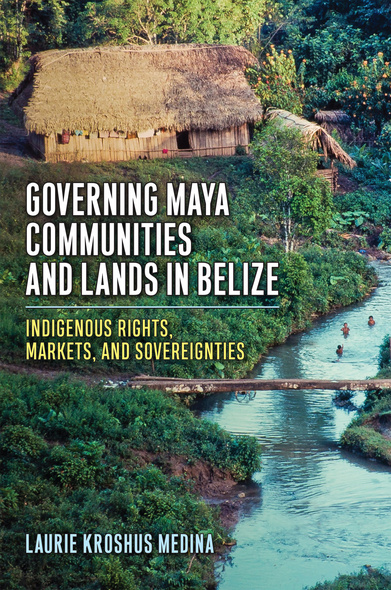
216 pages, 6 1/8 x 9 1/4
9 color and 6 B-W illustrations
Paperback
Release Date:17 May 2024
ISBN:9781978837744
Hardcover
Release Date:17 May 2024
ISBN:9781978837751
Governing Maya Communities and Lands in Belize
Indigenous Rights, Markets, and Sovereignties
Rutgers University Press
Confronting a debt crisis, the Belizean government has strategized to maximize revenues from lands designated as state property, privatizing lands for cash crop production and granting concessions for timber and oil extraction. Meanwhile, conservation NGOs have lobbied to establish protected areas on these lands to address a global biodiversity crisis. They promoted ecotourism as a market-based mechanism to fund both conservation and debt repayment; ecotourism also became a mechanism for governing lands and people—even state actors themselves—through the market. Mopan and Q’eqchi’ Maya communities, dispossessed of lands and livelihoods through these efforts, pursued claims for Indigenous rights to their traditional lands through Inter-American and Belizean judicial systems. This book examines the interplay of conflicting forms of governance that emerged as these strategies intersected: state performances of sovereignty over lands and people, neoliberal rule through the market, and Indigenous rights-claiming, which challenged both market logics and practices of sovereignty.
In this careful and lucid account of the struggle for Indigenous land rights in Belize, Medina not only gets the details right, but also steps back to give the local issues a broader legal, political, economic and anthropological context. It is essential reading for all those concerned with the conflicts between states, economic development and Indigenous peoples.
In this careful and lucid account of the struggle for Indigenous land rights in Belize, Medina not only gets the details right, but also steps back to give the local issues a broader legal, political, economic and anthropological context. It is essential reading for all those concerned with the conflicts between states, economic development and Indigenous peoples.
Medina thoughtfully analyzes the claims of Maya people in southern Belize to their customary systems of land tenure and local government, based on their culture and history. These claims have conflicted with state claims of sovereignty, capitalist conceptions of private property, and the changing demands of a neoliberal economy. Her study makes an important contribution to understanding disputes about the communal rights of Indigenous people everywhere.
Medina thoughtfully analyzes the claims of Maya people in southern Belize to their customary systems of land tenure and local government, based on their culture and history. These claims have conflicted with state claims of sovereignty, capitalist conceptions of private property, and the changing demands of a neoliberal economy. Her study makes an important contribution to understanding disputes about the communal rights of Indigenous people everywhere.
'Governing Maya Communities and Lands in Belize provides original insights into how Mayan peoples in Belize achieved groundbreaking legal victories recognizing their rights to land and territories. Through careful ethnographic analysis of multilevel judicialization, it shows how sociolegal mobilization can strengthen Indigenous peoples' systems of law and governance, sustaining alternatives to the extractivist logics of neoliberal markets.'
LAURIE KROSHUS MEDINA is director of the Center for Latin American and Caribbean Studies and associate professor of anthropology at Michigan State University in East Lansing. She is the author of Negotiating Economic Development: Identity Formation and Collective Action in Belize.
List of Illustrations
Preface
List of Acronyms
1 Competing Rationalities of Rule: Sovereignty, Markets, and Indigenous Rights
2 Histories of Belize: Sovereignties Claimed, Sovereignties Performed
3 NGO Government of the State: Conducting the Conduct of State Officials
4 Governing through the Market: Managing Tropical Nature and Maya Communities
5 Contested Histories and Histories of Contestation in Southern Belize
6 The Production of Indigenous Rights: Indigenous Advocacy in the United Nations and the Inter-American Human Rights System
7 Advancing the Maya Claim Through the Belizean Judicial System
8 Negotiating the Interface of Maya Customary Tenure and Belizean Law
Conclusion
Notes
Glossary of non-English Terms
References
Index
Preface
List of Acronyms
1 Competing Rationalities of Rule: Sovereignty, Markets, and Indigenous Rights
2 Histories of Belize: Sovereignties Claimed, Sovereignties Performed
3 NGO Government of the State: Conducting the Conduct of State Officials
4 Governing through the Market: Managing Tropical Nature and Maya Communities
5 Contested Histories and Histories of Contestation in Southern Belize
6 The Production of Indigenous Rights: Indigenous Advocacy in the United Nations and the Inter-American Human Rights System
7 Advancing the Maya Claim Through the Belizean Judicial System
8 Negotiating the Interface of Maya Customary Tenure and Belizean Law
Conclusion
Notes
Glossary of non-English Terms
References
Index

